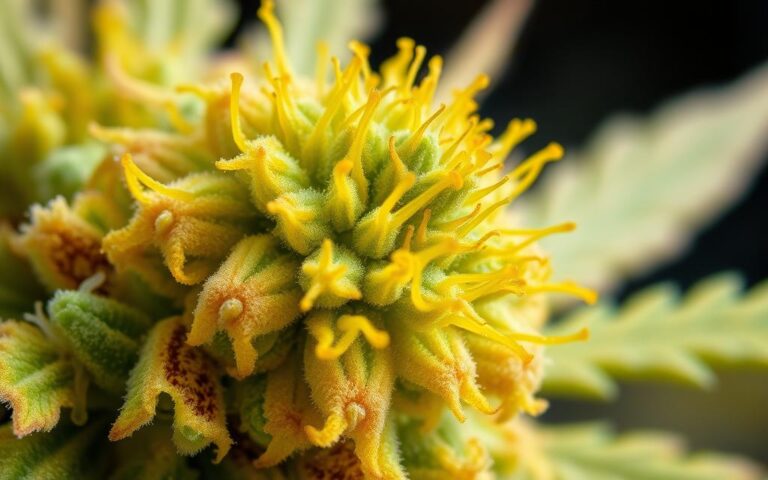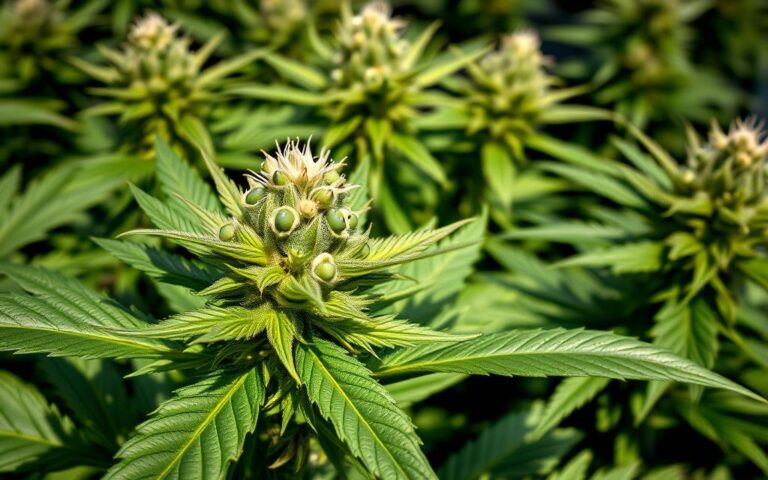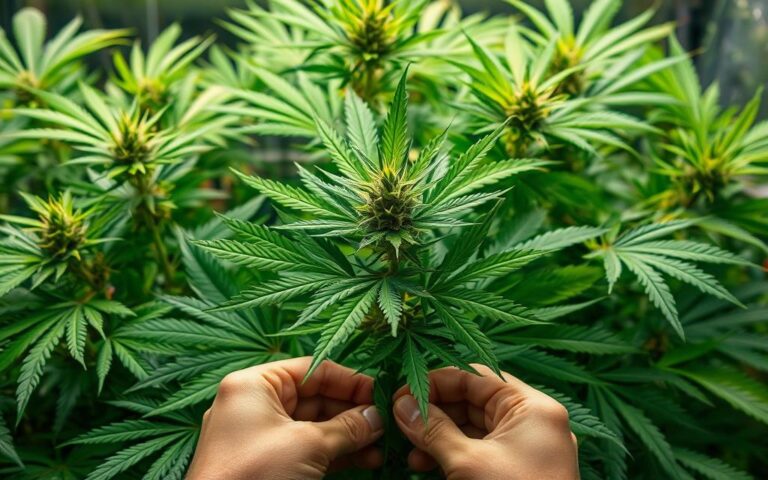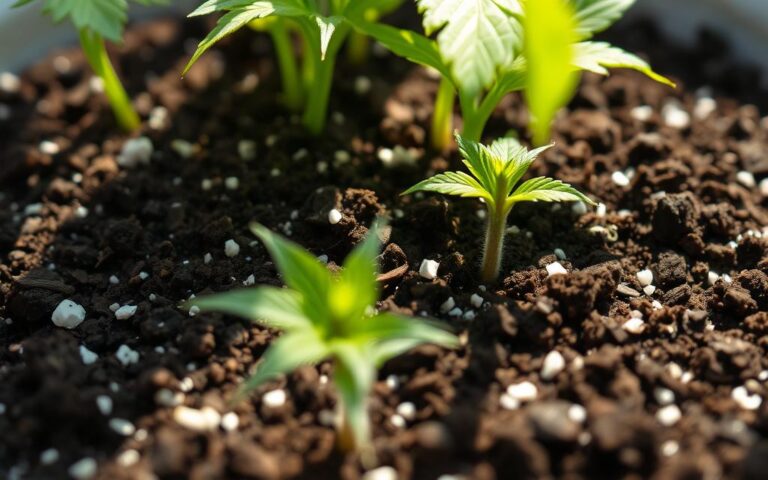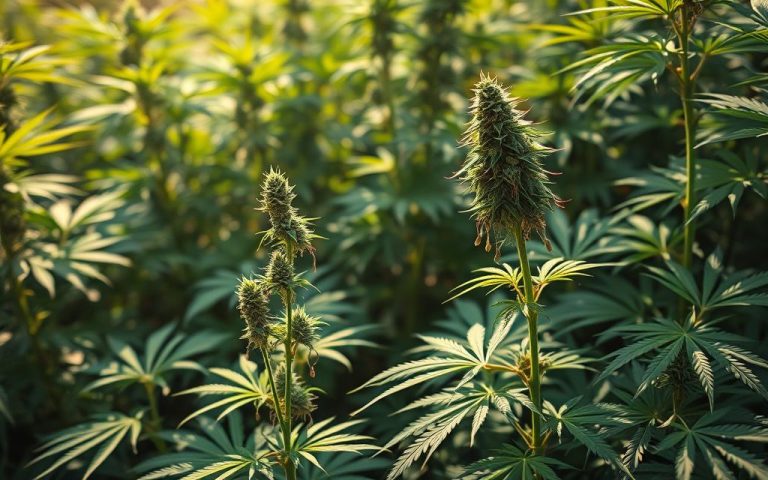Recovery from Cannabis-Induced Psychosis
With more people using cannabis, we’re seeing more cases of cannabis-induced psychosis. This condition can cause hallucinations and paranoia. To recover, people need support, guidance, and to make healthy changes in their lives.
Recovery isn’t the same for everyone because the condition varies. Noticing symptoms early and seeking help quickly can make a big difference. Resources like cannabis psychosis treatment programmes offer much-needed support for this journey.
Understanding Cannabis-Induced Psychosis
Cannabis-induced psychosis is a serious mental health issue. It happens after someone uses cannabis, leading to big changes in how they perceive things and think. Knowing about this issue helps us understand its impact on people and their care. This condition includes symptoms like seeing or hearing things that aren’t there, false beliefs, and strong paranoia. These symptoms usually start suddenly and can happen more if someone uses a lot of cannabis or very strong cannabis.
Definition and Characteristics
The definition of cannabis-induced psychosis includes episodes of acute mental health issues caused by cannabis. Symptoms can include:
- Hallucinations
- Delusions
- Paranoia
- Disorganised thought processes
By understanding these signs, we can spot and help affected individuals sooner. Those experiencing this may rapidly shift in mood, showing the need for a mental health check after using a lot of cannabis. Recovery can range from days to weeks, and many improve when they stop using cannabis.
Comparing to Other Psychotic Disorders
To diagnose this condition, doctors often compare it to disorders like schizophrenia. Though symptoms may look alike, it’s key to spot the differences for the right treatment. When comparing, we see that cannabis-induced symptoms usually occur after use, whereas chronic disorders like schizophrenia are ongoing. Studies show a higher risk for people already likely to experience psychosis, with factors like age or other mental health problems playing a role. Understanding these differences helps lower stigma and provides better help.
| Characteristic | Cannabis-Induced Psychosis | Schizophrenia |
|---|---|---|
| Onset | Acute, often linked to cannabis use | Gradual, often develops over years |
| Duration of Symptoms | Days to weeks | Chronic, can last a lifetime |
| Response to Substance Cessation | Often resolves after discontinuation | Symptoms may persist despite cessation |
| Common Symptoms | Hallucinations, paranoia | Delusions, disorganised thinking |
Risk Factors for Developing Cannabis-Induced Psychosis
Several key factors can raise your risk of getting cannabis-induced psychosis. It’s key to know these factors for better prevention. Some of the most important ones are listed below.
Genetic Predisposition
Research shows that genes related to psychosis can increase the risk of cannabis-induced psychosis. If psychotic disorders run in your family, cannabis might pose a bigger risk for you. Specific genetic factors and cannabis use together can heighten the chance of developing psychosis.
Age of First Use
Starting cannabis young greatly increases psychosis risk. The brains of teenagers are still developing, making them more at risk. If cannabis use begins before 18, the chance of getting schizophrenia later increases by 2.4 times. Using cannabis often during these years can bring on psychotic disorders sooner.
Existing Mental Health Conditions
Already having mental health issues can add to the risk of cannabis-induced psychosis. Those with mood disorders or a history of psychosis are more likely to be affected by cannabis. These mental health problems can make recovery harder, needing special clinical care.
| Risk Factor | Description | Impact on Psychosis Risk |
|---|---|---|
| Genetic Predisposition | Family history of psychotic disorders | Increased vulnerability to cannabis-induced psychosis |
| Age of First Use | Beginning cannabis use at a young age, particularly adolescence | Higher likelihood of developing schizophrenia |
| Existing Mental Health Conditions | Pre-existing mood disorders or psychotic symptoms | Complicated recovery and increased susceptibility |
Knowing these factors helps both people and health experts be careful with cannabis, especially for those at risk. Education and prevention can lower the chances of getting cannabis-induced psychosis. Understanding the role of genes will help more research and public health work.
Does Cannabis-Induced Psychosis Go Away?
Cannabis can have a serious impact on mental health. It’s important to understand how long psychosis symptoms last and what affects recovery. This knowledge helps those affected and their families. Many studies have looked into how long symptoms last and what helps recovery, providing key insights.
Duration of Symptoms
Many people with cannabis-induced psychosis get better within days to weeks after they stop using cannabis. However, if someone keeps using cannabis, their cannabis psychosis symptom duration may last longer. Some people, like Ethan Andrew, see their symptoms improve after two months. This shows that recovery time can vary a lot between individuals.
Factors Influencing Recovery
Several factors can affect how someone recovers from psychosis. These include how severe previous psychotic episodes were, if there were any mental health issues before, and how much support they get from family or professionals. Getting help early can make a big difference. It can help prevent more episodes. Also, understanding the link between long-term cannabis use and mental illnesses, like schizophrenia, is vital. This helps focus recovery on changing substance use habits.
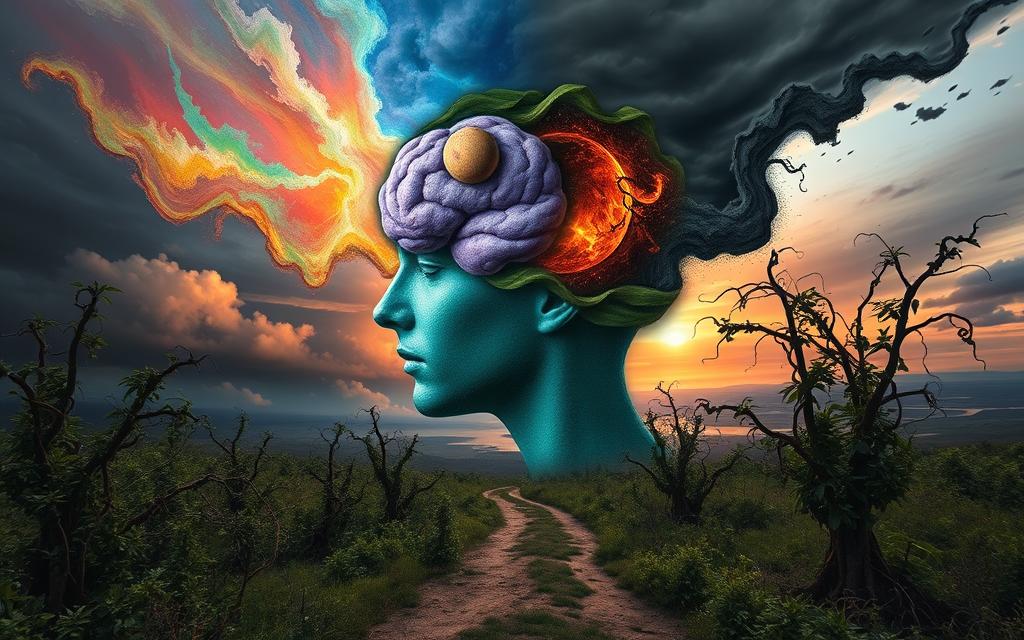
Treatment Approaches for Cannabis-Induced Psychosis
Treatment for cannabis-induced psychosis focuses on immediate and long-term care. It uses a comprehensive method that balances stabilisation with continuous support. This approach addresses the condition’s complexity effectively.
Emergency Care and Stabilisation
Severe symptoms may require urgent care to protect the individual’s health. Detoxification is the first step, done in a safe setting. It’s key in managing acute symptoms and stabilising the patient.
Medical professionals provide crucial support early on. They help prevent complications and ensure the patient’s safety during this phase.
Long-term Treatment Options
After initial care, long-term treatments help secure a lasting recovery. Therapies like cognitive-behavioural therapy (CBT) and counselling tackle emotional and psychological factors. They focus on the roots of cannabis use and its impacts.
Education and support from professionals are vital for lasting recovery. Learning how to deal with stress and avoid triggers can help prevent a relapse. Continuous support builds a hopeful and resilient community around the individual.
| Treatment Phase | Intervention | Purpose |
|---|---|---|
| Emergency Care | Detoxification | Stabilise acute symptoms and ensure safety |
| Long-term Care | Cognitive-Behavioural Therapy (CBT) | Address underlying emotional issues |
| Long-term Care | Substance Abuse Counselling | Prevent relapse and promote healthy behaviours |
| Continuous Support | Education and Advocacy | Foster community and resilience throughout recovery |
Support Systems During Recovery
Recovering from cannabis-induced psychosis is not straightforward. Effective support systems are crucial for this journey. Getting help from experts and the community can really help recovery.
Importance of Professional Support
Getting help from professionals is vital for treating cannabis psychosis. Mental health experts offer specific and broad help tailored to each person. They aid in handling symptoms and building coping methods. This support is key for overcoming everyday challenges in recovery.
Peer Support and Community Resources
Joining peer support groups can aid recovery from cannabis-induced psychosis. These groups provide a space for sharing experiences and finding understanding, giving a sense of community. Also, community resources offer useful tips to stay motivated. Connecting with others who’ve faced the same struggles shows how shared support is crucial for recovery. For more details on recovery strategies, look at trusted sites like recovery support cannabis blogs.
| Support Type | Description | Benefits |
|---|---|---|
| Professional Support | Guidance from trained mental health practitioners. | Structured approach and tailored coping strategies. |
| Peer Support Groups | Connect with others who have similar experiences. | Shared understanding and motivation. |
| Community Resources | Access to local support services and groups. | Practical strategies for recovery and social connection. |
Using professional help and peer support in recovery plans can improve symptom management. This enhances healing for those dealing with cannabis-induced psychosis.
Conclusion
Recovery from cannabis-induced psychosis can greatly differ from one person to another. It’s often based on how soon they get help. Early intervention is crucial in reducing the impact of symptoms. Support from professionals or community resources is also vital in recovery.
Stopping cannabis can lead to a rapid decrease in symptoms such as confusion, exaggerated self-importance, and seeing or hearing things. This shows our brain’s amazing ability to heal with the right support and treatment. As studies continue, it’s key to teach people about the mental risks of cannabis to protect health.
As the acceptance of cannabis increases, knowing its psychological impacts is more important than ever. Spreading awareness and encouraging early medical help can prepare us and our communities. This way, we can address the challenges of cannabis-induced psychosis and ensure better health outcomes for those affected.
FAQ
What is cannabis-induced psychosis?
Cannabis-induced psychosis includes symptoms like hallucinations and paranoia. It happens after using cannabis. Symptoms go away if you stop using cannabis.
How does cannabis-induced psychosis compare to schizophrenia?
Both can look similar with symptoms like delusions. But, cannabis-induced psychosis is temporary and improves when cannabis use stops. Schizophrenia is a long-term condition.
What are the risk factors for developing cannabis-induced psychosis?
The main risks are genetic factors, starting cannabis young, and existing mental health issues. Those with psychotic disorders in the family or who start cannabis early are more at risk.
How long do symptoms of cannabis-induced psychosis last?
Symptoms usually improve within a week or two of stopping cannabis. But, how long symptoms last can vary from person to person.
What treatment options exist for cannabis-induced psychosis?
Initially, emergency care may be needed. After that, treatments like cognitive-behavioural therapy and counselling help. They tackle the deeper issues related to substance use.
Why is professional support important during recovery?
Professional help is key for managing symptoms and building coping skills. It helps individuals recover stronger and reduces the chance of relapse.
How can peer support and community resources aid recovery?
Support groups and local resources provide a sense of understanding and shared experiences. They help motivate recovery with practical advice, strengthening community support.





